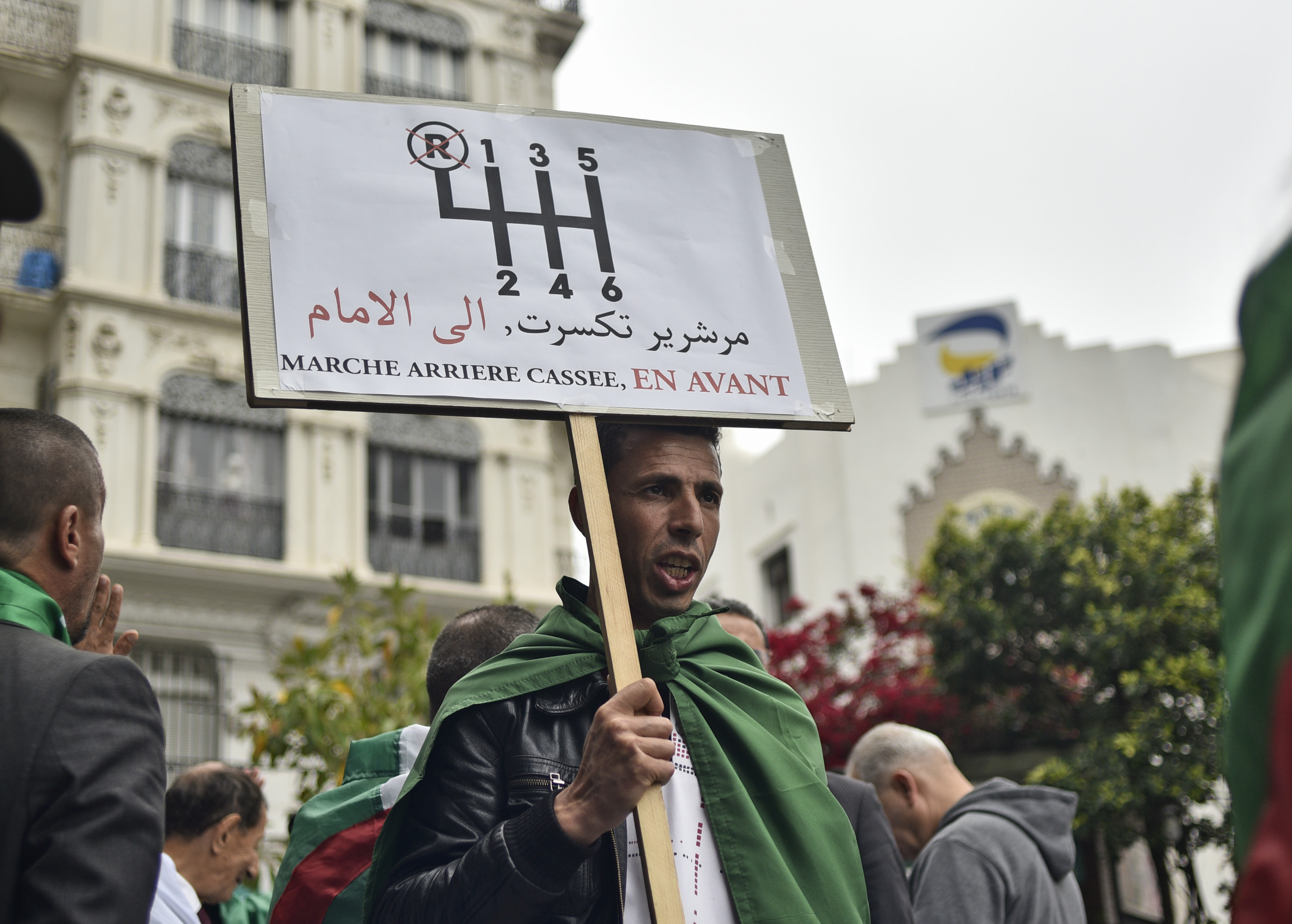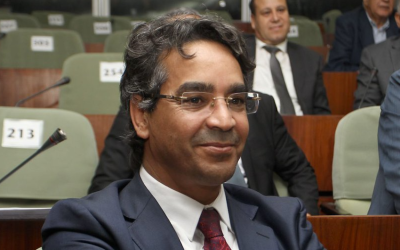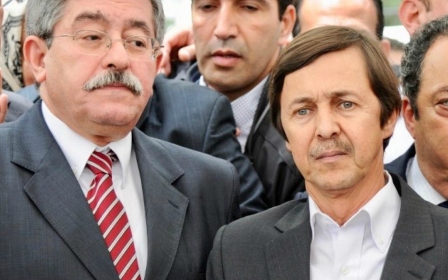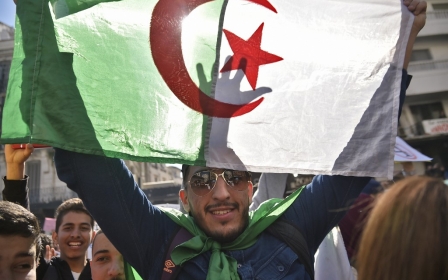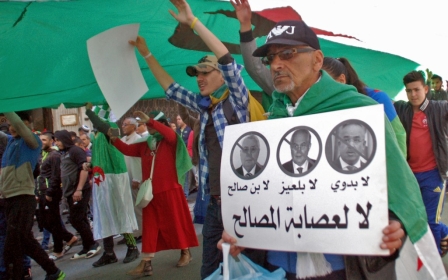Algeria's election date maintained as army chief defies opposition
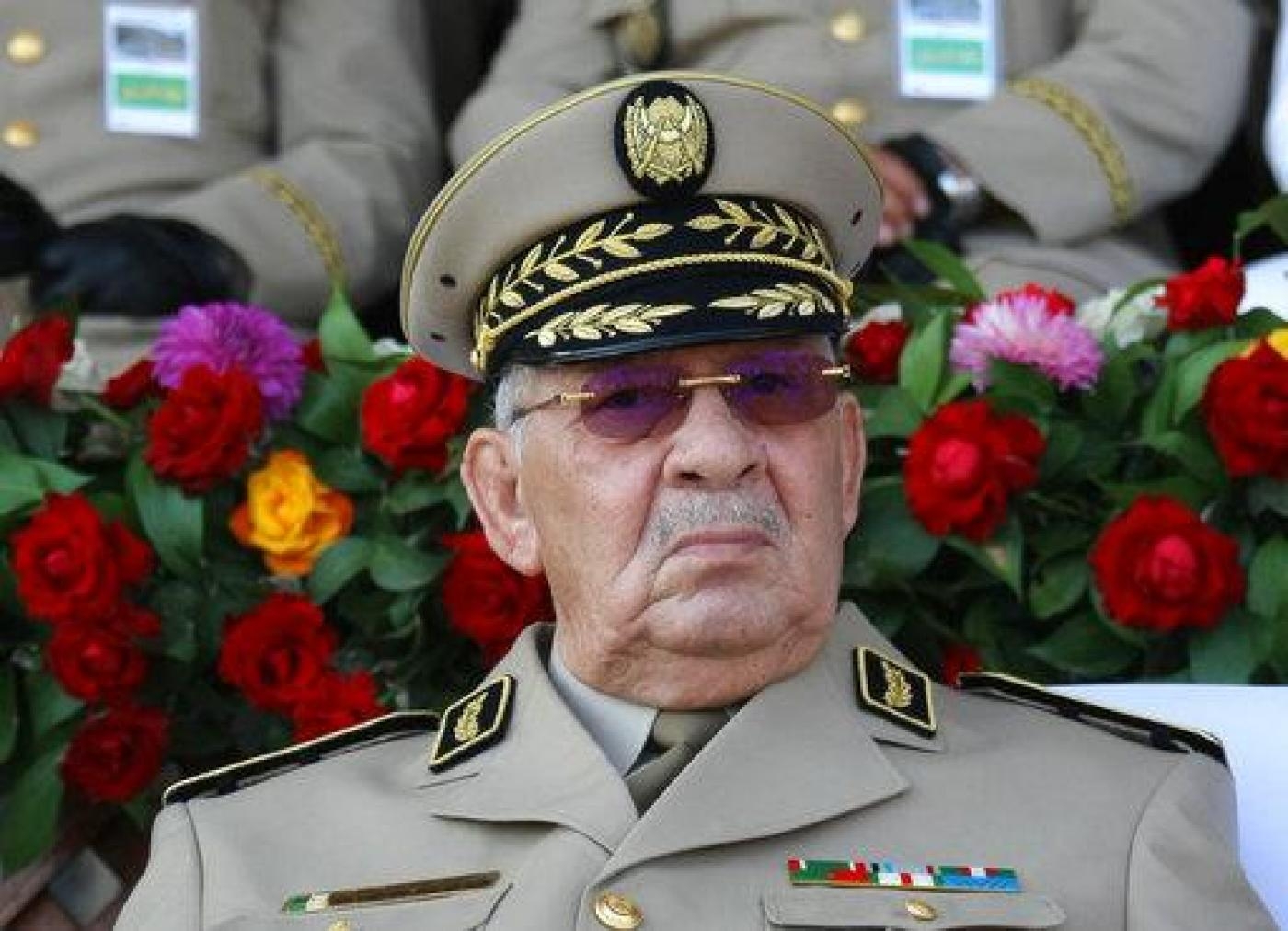
With opposition parties and demonstrators rejecting the authorities’ post-Abdelaziz Bouteflika roadmap for new presidential elections on 4 July, Algerian army Chief of Staff Lieutenant-General Ahmed Gaid Salah has insisted the election goes ahead, as required by the constitution.
During a visit to Ouargla province in southern Algeria on Monday, Salah said “the presidential election would stop [the scheming] of those who are trying to prolong the crisis”.
He emphasised the “need to expedite the establishment of an independent body to organise and oversee the elections," in line with the position of Algeria’s new interim leader, Abdelkader Bensalah.
‘It is impossible to organise presidential elections’
The general’s much-awaited statement came shortly after the candidacy bids for the 4 July elections came to a close.
New MEE newsletter: Jerusalem Dispatch
Sign up to get the latest insights and analysis on Israel-Palestine, alongside Turkey Unpacked and other MEE newsletters
Of the 74 candidates in the running, only the names of the top three contenders for Algeria’s highest office are known to date: retired major-general Ali Ghediri; the president of the Jabhat al-Mustaqbal (Front for the Future) party and former leader of a National Liberation Front (FLN) satellite organisation, Abdelaziz Belaid; and the president of the National Republican Alliance, Belkacem Sahli, whose pro-government party had backed the deposed president Bouteflika.
“It is virtually impossible to organise presidential elections within the prescribed time limit,” sociologist Nacer Djabi said on public radio on 8 May. Mayors and public officials around the country are openly refusing to oversee the electoral preparations and process.
'It is virtually impossible to organise presidential elections within the prescribed time limit'
- Nacer Djabi, sociologist
Over the past few Fridays, tens of thousands of demonstrators across the country have chanted slogans to protest the planned polls. Together with a part of the opposition, they refuse to allow successors of the Bouteflika entourage to organise the elections.
The army chief of staff’s declarations also rebuff a recent proposal put forward by three prominent figures on the national scene.
Last Sunday, Ahmed Taleb Ibrahimi, a minister under former presidents Houari Boumediene and Chadli Bendjedid; Rachid Benyelles, a former general and member of the opposition; and Ali Yahia Abdenour, a human rights lawyer, published a letter calling for the postponement of the presidential elections and for a dialogue between the army and “representatives of the people’s movement, as well as parties and the political and community groups which support it”.
“Upholding the 4 July deadline will only delay the inevitable emergence of the new republic”, the three widely respected figures wrote. “How can we even conceive of free and fair elections when the vast majority of the population rejects the fact that they are organised by discredited institutions, opposed to any form of positive change?”
Most politicians welcomed the initiative, which was described by the challenger and former head of government Ali Benflis as “the safest and cheapest way out for the country”. However, the army commander seems to have only heard part of the call: the need for talks, for which he intends to set the conditions.
The army chief of staff, who is also the deputy defence minister, said that prior to the talks “the nature of the demonstrations needed to be reviewed, and that they needed to be organised by responsible citizens with the best interests of the nation at heart."
Up until now the mass demonstrations, which began on 22 February, have been marked by a pacifism that has earned the respect of the international community. But that’s not what the army chief of staff is all worked up about. It is the scale of the Algerian people’s demands.
The “unreasonable demands”, according to Salah, include the withdrawal of Bouteflika-era leaders such as Prime Minister Noureddine Bedoui, interim head of state Bensalah and Salah himself, recently targeted as a symbol of the former regime.
“Requiring the collective departure of all senior government officials for allegedly representing the former system is an unobjective and unreasonable demand, if not a dangerous and malicious one, serving only to unseat and denigrate the public servants at the head of our national institutions,” Salah said.
Threatening the ‘intriguers’
Likewise, Salah called for the people’s movement to appoint “valid representatives to dialogue with government bodies, and to sincerely and truthfully convey the legitimate demands of the demonstrators”.
Finding representatives of the protest movement who are nonetheless averse to the prevailing calls for the political sphere to “cleansed” may be a bit tricky, however -unless, of course, they are in fact “appointed”.
'Requiring the collective departure of all senior government officials for allegedly representing the former system is an unobjective and unreasonable demand'
- Lieutenant-General Ahmed Gaid Salah
The military chief went on to renew his threats to “individuals with dubious intentions” and people “endeavouring to take advantage of their rank and position to further their own interests". He accused those same individuals of trying to “weaken the army”, cautioning “those involved in conspiring against the National People’s Army and Algeria by committing criminal acts”.
“Those people's attitudes have shown they are opposed to any positive outcome, even one that would benefit the nation, their professional track record has shown they have undermined the army, simply because they were too busy pursuing their own selfish interests,” Salah added.
He was referring to the former high-ranking intelligence officers Mohamed “Toufik” Mediene and Athmane “Bachir” Tartag, imprisoned since early May for “conspiring”.
The chief of staff was also referring to retired General Hocine Benhadid, arrested last week for voicing concerns about Salah in a letter published by the press.
The head of Algeria’s Workers’ Party (PT), Louisa Hanoune, a leading left-wing political figure in Algeria since the late 1980s, has also been imprisoned since 9 May on a military prosecutor’s order.
She is accused of conspiring with Said Bouteflika, the deposed president’s brother, and the retired generals Mediene and Tartag. Her request for bail was denied on Monday.
When the solution becomes a problem
The head of the PT parliamentary group has said that “the leader of a political party should not be suspected of wrongdoing for having discussed the situation in Algeria with Said Bouteflika and General Toufik”.
Hanoune’s lawyer says she told military judges that she believed the meeting with Mediene and the former president’s brother had been organised by the latter.
Salah has accused Mediene, Tartag and Said Bouteflika of attempting to plot an unconstitutional transition to oversee the post-Bouteflika period by sacrificing Mediene’s age-old rival – none other than the military chief of staff himself.
'No one is blocking ‘a constitutional solution’. The fact is, it’s not a solution but a problem'
- Mochine Belabbas, RCD president
Given the current context, and the demands for the ousting of the army chief along with a number of state and non-state media outlets, any proposal for a transition, besides the one enacted by the authorities, is considered a “conspiracy”. Meanwhile, fears of tightened authoritarian rule in Algeria are running high.
“No one is blocking ‘a constitutional solution’. The fact is, it’s not a solution but a problem,” said Mochine Belabbas, the president of the Rally for Culture and Democracy (RCD).
According to the Socialist Forces Front, “the initiators of this political timetable are getting ready to carry out yet another electoral takeover”, while the Algerian League for the Defence of Human Rights has expressed concerns that “maintaining the election could jeopardise national cohesion and stability”.
- The article is an edited translation of a story that was originally published by Middle East Eye's French website.
Middle East Eye delivers independent and unrivalled coverage and analysis of the Middle East, North Africa and beyond. To learn more about republishing this content and the associated fees, please fill out this form. More about MEE can be found here.


